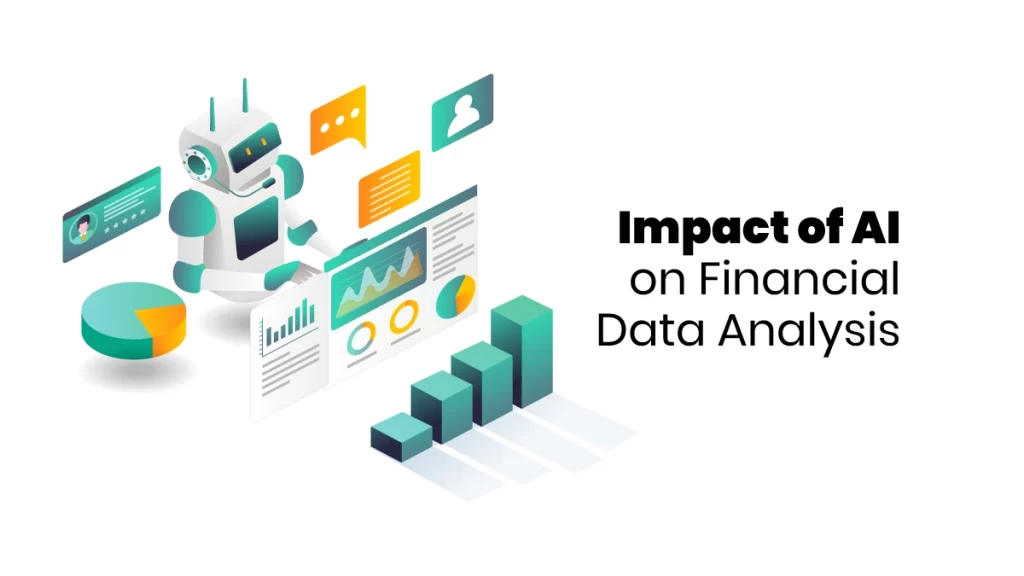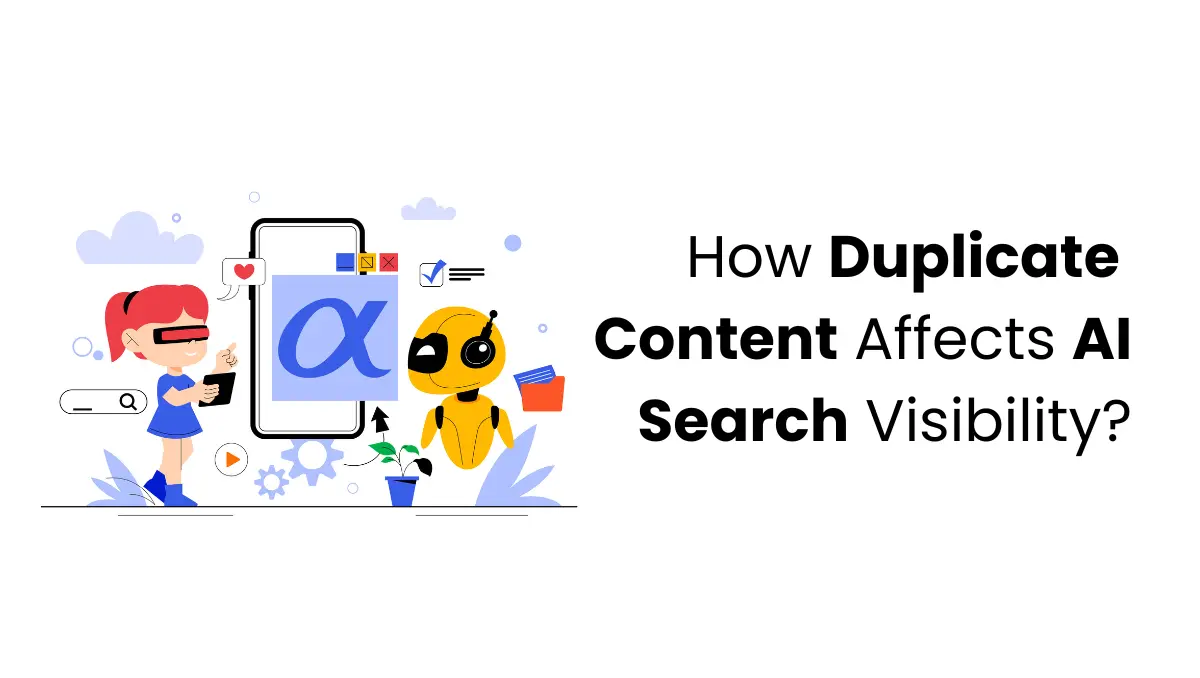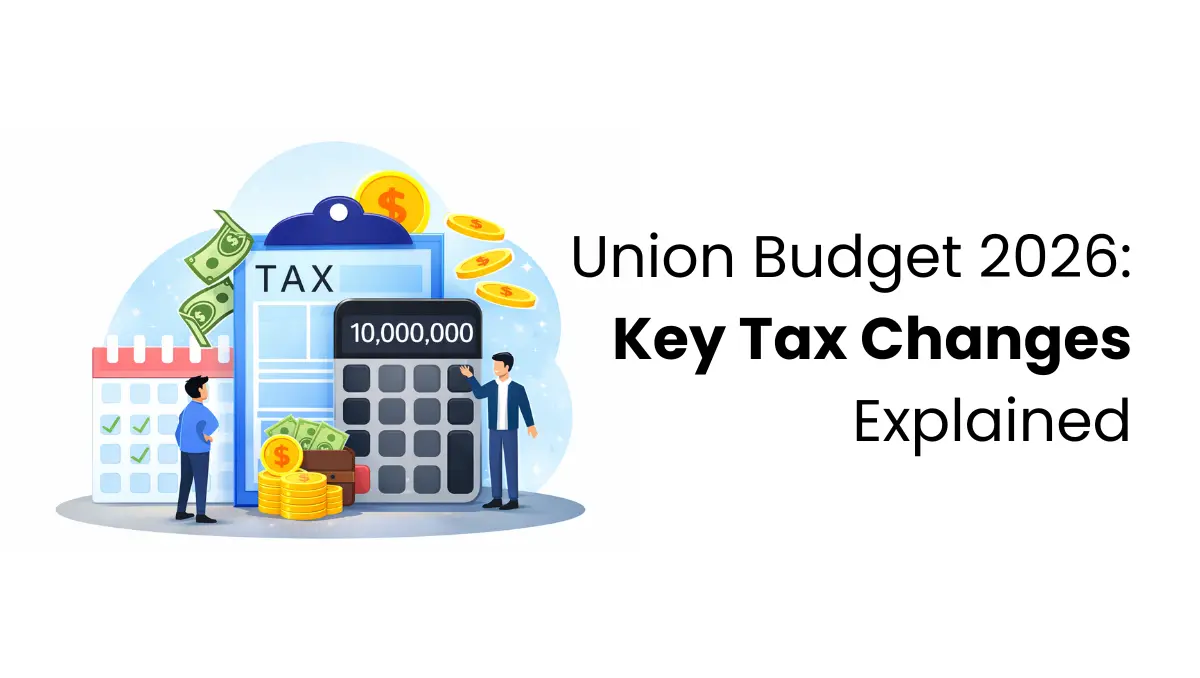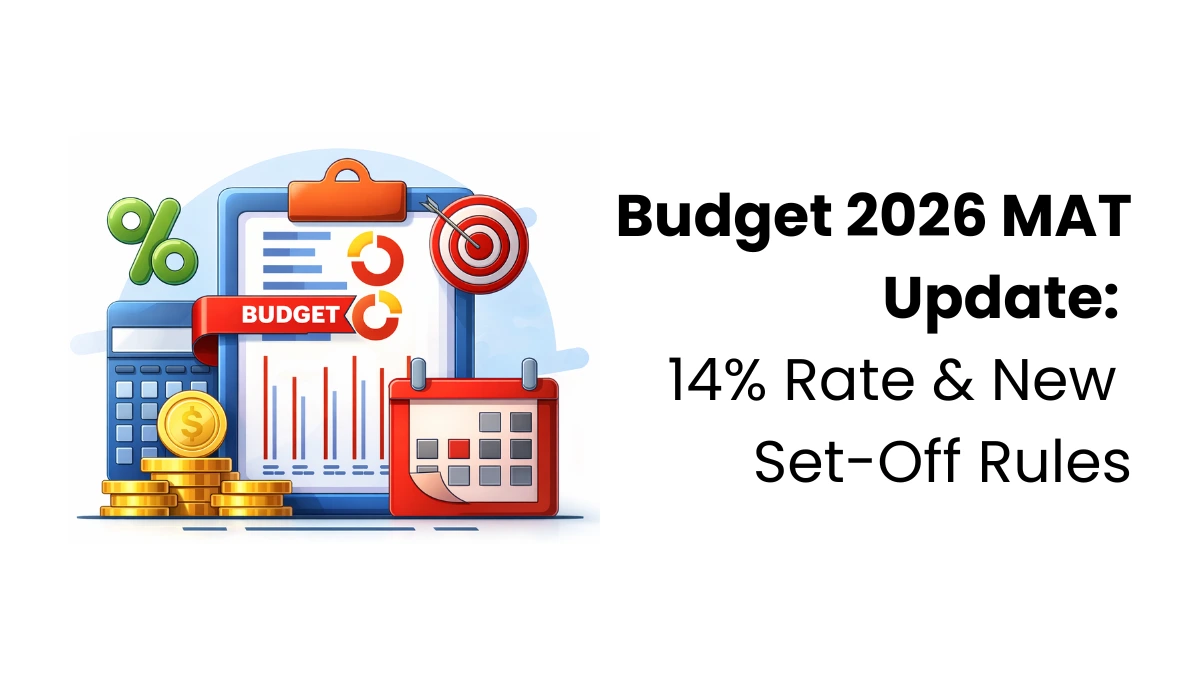The impact of AI on financial data analysis has always been about analyzing data to predict risks and rewards. But now, there’s so much data that people can only handle some of it. That’s where AI finds essential information in all that data. AI is changing finance in significant ways. It automates boring jobs and finds tricky patterns. It can also analyze tons of data, like documents and news, to figure out things we couldn’t do on our own. This could mean better guesses, understanding risks right away, and making smart choices about money.
But it’s not just about making money. If used correctly, AI in finance can also help more people get loans and other financial help. This tech upgrade isn’t just about making things automatic; it’s about making financial decisions more accurate, faster, and better. Let’s look into:
- How AI and machine learning simplify tricky financial data.
- How AI has changed analyzing financial data from doing it by hand to using intelligent machines.
- Why AI insights are super crucial for making smart money moves today.
Let’s break down Artificial Intelligence (AI) and Machine Learning into more straightforward terms:
Artificial intelligence means creating systems that can do things like humans do. Machine learning, a big part of AI, lets computers learn and improve themselves without being told precisely how to do things. Here’s how these technologies help:
- AI can manage vast amounts of information, find patterns, and give us helpful advice.
- Machine learning looks at what happened before to determine what might happen. This is useful for making smart investment choices.
History of AI in Financial Data Analysis
The impact of AI on financial data analysis has changed a lot over the years. At first, people did everything by hand, which took forever. Then came computers and, later, AI and machine learning. This shift tells us that financial data has become trickier, and there is more of it now. That’s why we need fancier tools to make sense of it all.
Changes from Traditional to AI
Switching from old-fashioned data analysis to AI-powered methods is a big deal in finance. The old ways were alright, but they needed to catch up with how fast and complicated markets are nowadays. AI and machine learning have fixed that by giving us:
- Quick looks: We can now immediately check out market changes and news.
- Fewer mistakes: There’s less chance of messing up when working with numbers and making decisions.
- Dealing with more data: Even as we get more and more data, AI helps us handle it all without needing extra time or money.
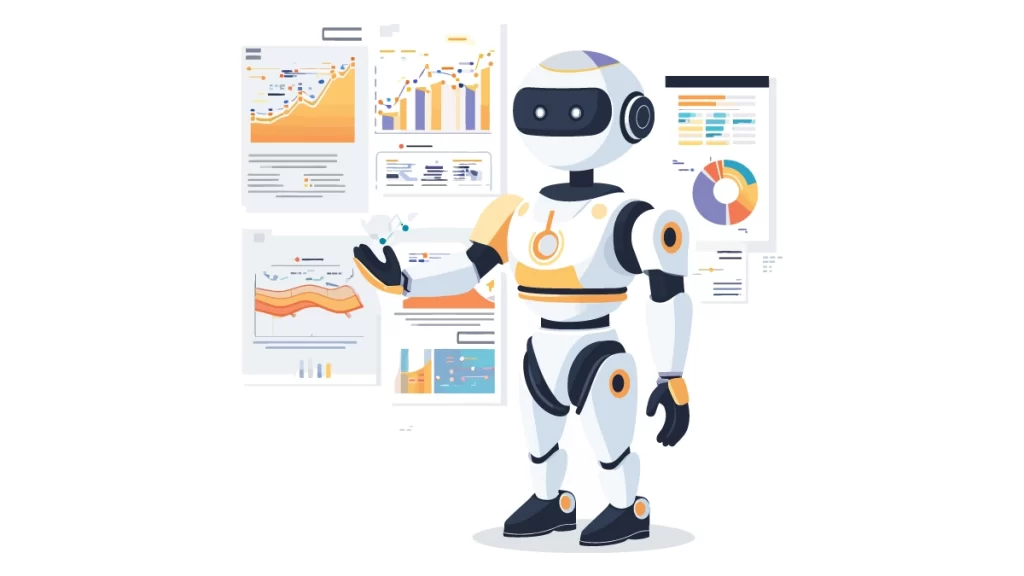
How AI Enhances Financial Data Analysis?
The impact of AI on financial data analysis has changed how we analyze financial data, making it much more accessible to deal with large and complicated sets of information.
AI’s Skills with Big Datasets
AI’s influence on financial analytics is good at quickly handling and understanding a lot of data. This is super important in finance, where there’s tons of data, and you need to analyze it fast to make intelligent decisions. AI can:
- Find hidden patterns and connections in data that people might miss, helping to predict how markets will move.
- Speed up the process of looking at data coming in right now so financial models always have the latest info.
Comparing AI and Traditional Data Analysis
- Traditional methods are slow and require manual work, but AI can analyze things instantly.
- AI makes fewer mistakes because it doesn’t have human biases.
- AI can quickly handle enormous amounts of data, while traditional methods struggle with lots of data.
Here are examples showing AI’s effectiveness in financial analysis:
- Algorithmic Trading
A hedge fund used AI to analyze news and social media and make better trades than usual.
- Credit Risk Assessment
A bank used machine learning to guess better who might not repay loans, allowing it to offer fairer interest rates.
How does AI help with financial data?
Different AI Tools
- Neural Networks: They work like our brains, spotting patterns in data well.
- Natural Language Processing (NLP): It helps understand things written in text, like news or finance reports, and helps figure out the mood and essential things.
- Machine Learning: It helps AI learn from data, get better at guessing, and understand future financial trends.
Real examples
- Feeling the Market: A company uses AI to check how people think about the market by reading news and social media. Based on that, they changed their investment plans.
- Stopping Fraud: Banks use AI to find strange transaction patterns and catch fraud before it happens.
- Handling Investments: Robo-advisors, which use AI, offer investment advice by analysing historical data and current market trends to recommend optimal financial decisions.
With these tools, AI’s impact on financial data analysis not only speeds up and improves financial analysis but also helps us make smarter decisions about money.
Challenges in understanding AI financial insights
Let’s read about some challenges which facing to understand about AI:
Hard to Understand
AI can be complicated, making it challenging for investors to grasp how it reaches conclusions. This could lead to doubts or using insights the wrong way.
Bias and Bad Data
AI only works well if it’s trained on good data. If the data is wrong or unfair, the insights could be wrong too.
Stuck in the Past
AI mostly looks at old data to guess what might happen next. But if the market changes fast, what happened before might not help predict the future. So, we must be careful about relying too much on AI insights alone.
So, while AI helps a lot with financial decisions, it’s not perfect. Investors need to understand what AI can do in finance and what it can’t. Using AI in finance means mixing it with human thinking and being fair. That way, investment choices are both smart and right.
To learn more about finance, joining finance courses will help you to acquire more knowledge. Several courses are available in the market and also we offer various accounting professional courses such as CBAT, PGBAT, Income Tax, Practical Accounting, PGDIFA, DIA, GST, SAP FICO, Tally Prime, and MS Excel. These courses are made to fit everyone’s needs, no matter where they are in their careers.
Our 6-month accounting courses in Kochi focus on practical training. At Finprov, we’re all about giving you an education that goes beyond the usual so you can succeed. Our courses are designed to help you find great jobs, setting you up for a bright future.

